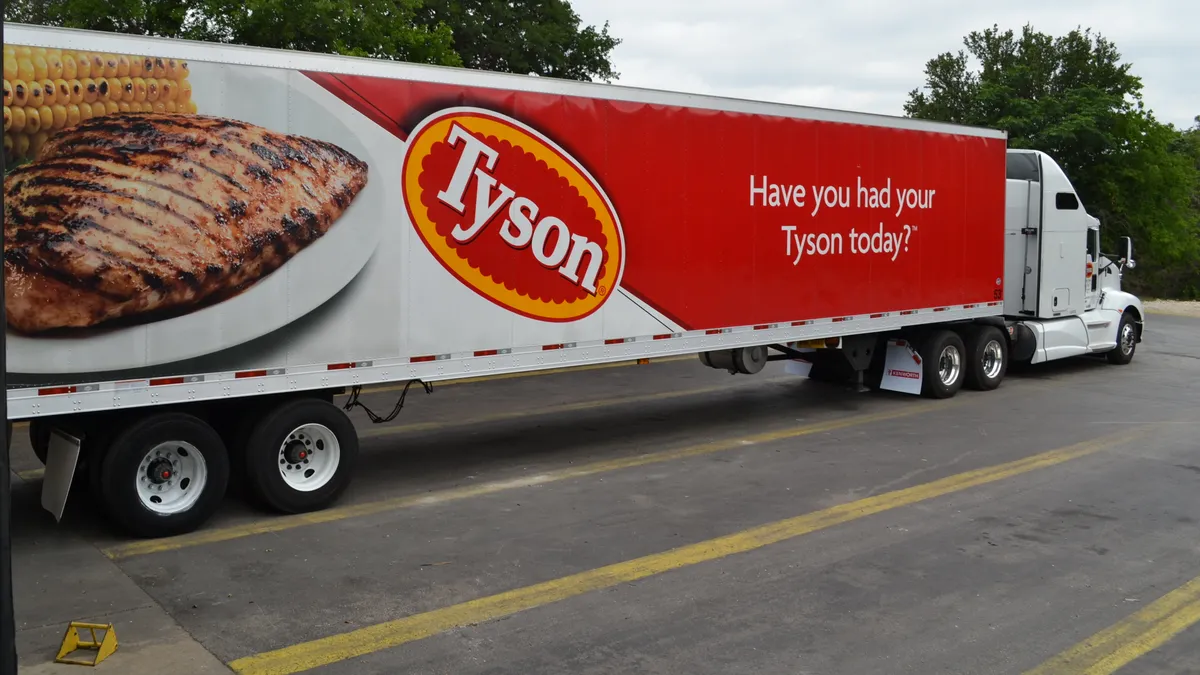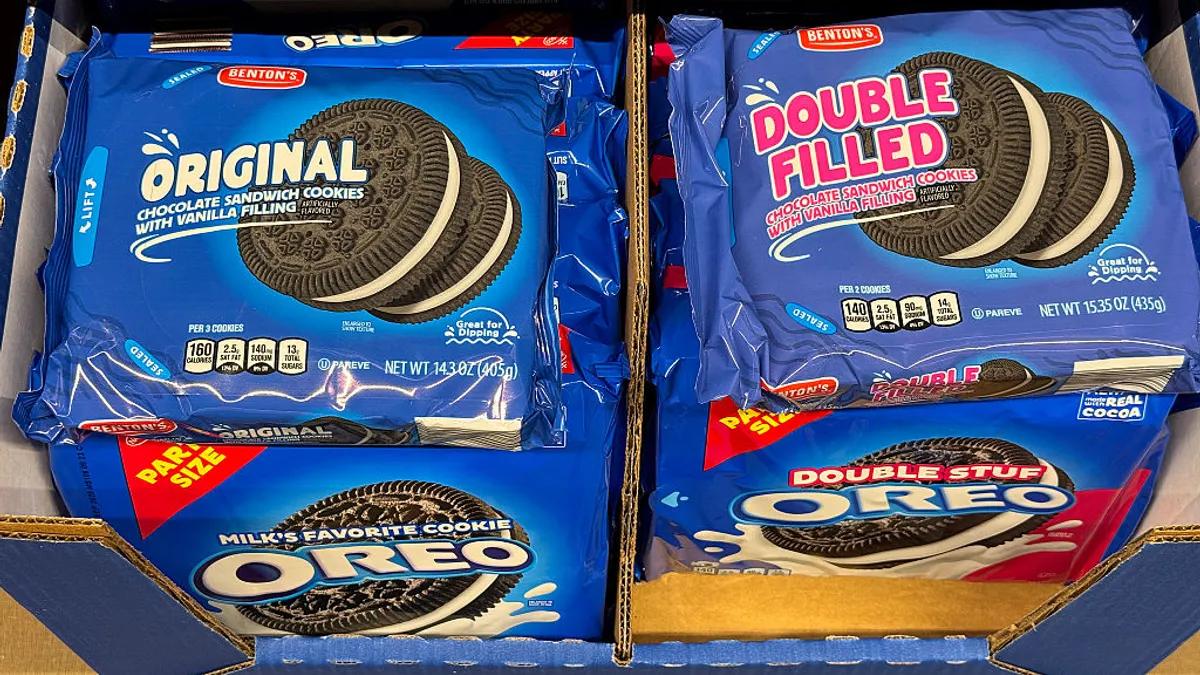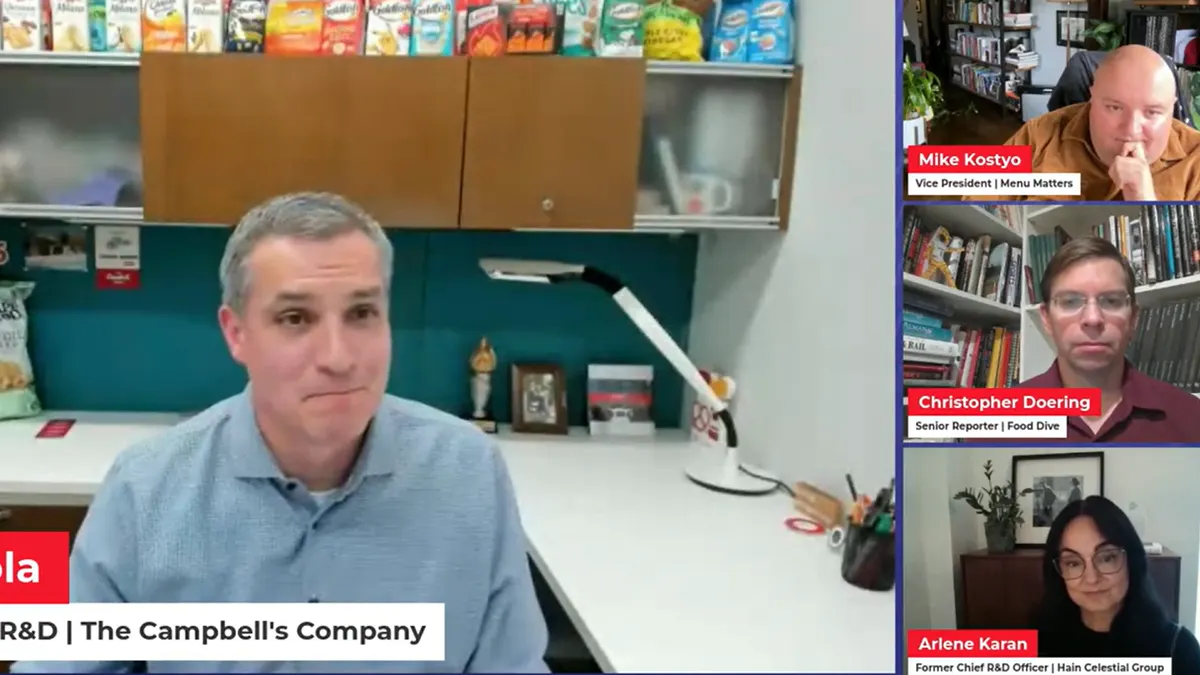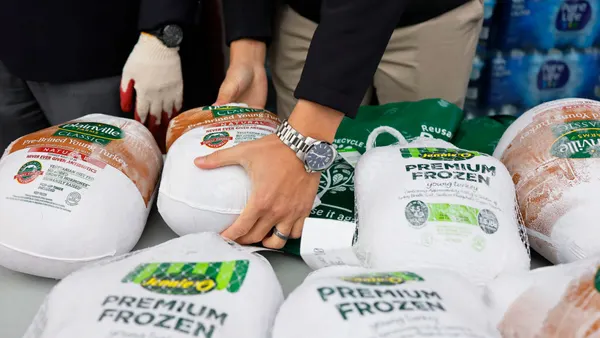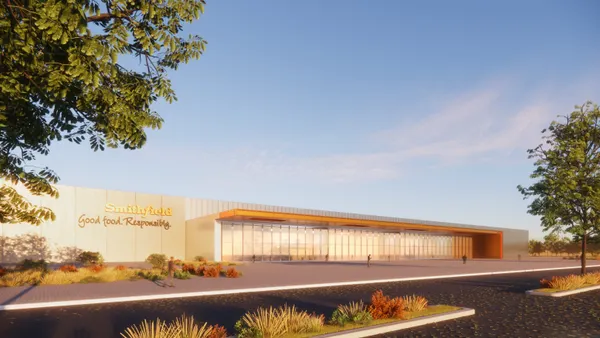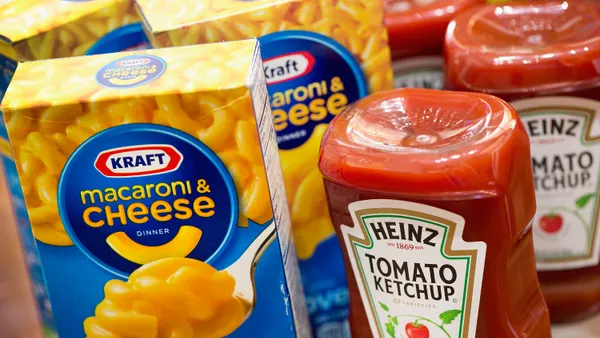Dive Brief:
- Tyson Foods is closing one of its largest beef processing plants and laying off more than 3,200 workers as U.S. cattle shortages pressure operations for major meatpackers.
- The meat giant disclosed in a statement it would end operations at its meatpacking facility in Lexington, Nebraska. It will also lower production at its Amarillo, Texas, beef facility to a single, full-capacity shift, resulting in layoffs of another 1,761 workers.
- Tyson said the move was necessary to "right size its beef business and position it for long-term success." It will increase production at other beef facilities to meet customer demand and offset volume losses from the closed plant.
Dive Insight:
Tyson is making cuts as U.S. cattle herds are at a 75-year low, according to the USDA, with many ranchers hesitant to rebuild after years of climate challenges and tough economics. The resurgence of a flesh-eating pest called the New World screwworm has also further threatened supply and made it more difficult for the U.S. to import beef.
Beef prices have soared as a result, with the cost of ground beef exceeding $6 per pound as of September. The dynamics have pressured earnings for some of the largest meatpackers, who are now paying more for beef and looking for ways to offset those costs.
While Tyson's beef sales have risen due to rising prices, executives acknowledged to investors earlier this month that higher cattle costs outpaced the higher sales. To address those challenges, the company plans on "prioritizing efficiency, reducing cost and introducing innovative products," according to CEO Donnie King.
Tyson's beef plant in Lexington had the capacity to process 5,000 head of cattle per day, according to news reports, which is nearly 5% of the daily U.S. beef slaughter. The plant, which has been in operation since 1990, produces cuts of fresh beef such as ribs, loins, chucks and rounds, as well as various ground beef products.
In 2015, Tyson invested $47 million to expand the plant, calling it "an important part of our beef business." In 2022, the meat giant also announced a $200 million investment in the Amarillo, Texas, plant, also one of the largest in the company's network.
Closing plants can upend rural communities where meatpackers are often the largest employer. The Lexington plant is expected to affect 3,200 jobs in a community with a population of about 11,000 people.
Nebraska U.S. Sen. Deb Fischer said she was "extremely disappointed" by the Tyson closure.
“Nebraska is the beef state, and we know better than anyone the highs and lows of the cattle market. It’s no secret that just a few years ago, packers like Tyson were making windfall profits while the rest of the industry was continuously in the red," she said in a statement.
Lawmakers have previously stepped in to try and force meatpackers to rethink closures. Tyson's plans to close two poultry plants in Missouri sparked furor from the state and prompted Sen. Josh Hawley to introduce a bill to break up poultry monopolies.
Nebraska Gov. Jim Pillen said in a statement the state's cattle industry is resilient, adding that Tyson promised to work on future value-added opportunities in the state.
"Big picture – our excellent cattlemen and cattle feeders have emerging opportunities and will still have the Tyson market to sell into as its planned re-organization will boost capacity and jobs at other Nebraska plants," Pillen said. "The state of Nebraska is ready to build for the future and do what it can do to support employees affected by this change.”
Editor’s note: This story has been updated to include layoff details from Tyson’s Amarillo plant


